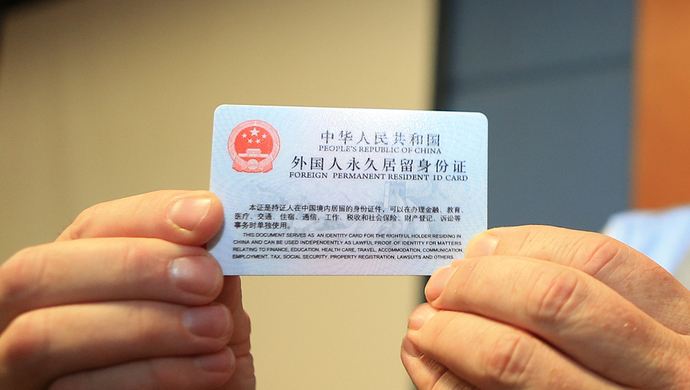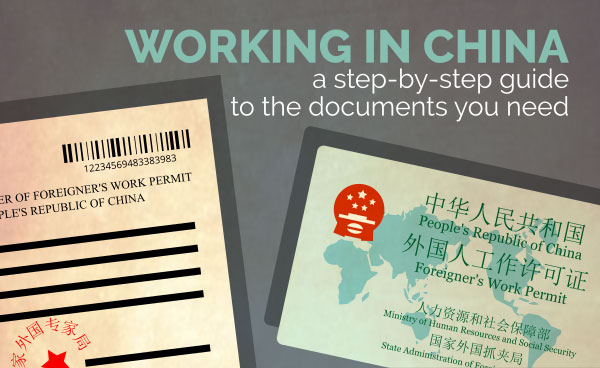
One of the world’s oldest civilizations is now one of its economic superpowers. Expatriates moving to China are attracted by the economic opportunities as well as the cultural experience.
Visa Requirements
There are various types of visa for China, all of which are categorized with enigmatic abbreviations such as “C visa” or “X visa”. These abbreviations are based on the Chinese designations for specific visa categories: C (chuányuán = crew), L (lǎowài = foreigner, tourist), X (xuéshēng = student), J (jìzhě = journalist), G (guòjìng = transit), etc.
Thus, an L visa is the one you need to enter the country as a visitor for private purposes, e.g. for a sightseeing tour, to meet a friend, or to see a family member. Such an L visa is valid for a stay of 30 days, though you might be able to renew it in the country. It is therefore the sort of visa a visitor rather than an expat needs.
Applying for an L visa usually requires the following documents:
- a completed application form
- a valid passport with blank visa pages
- a recent passport photograp
- a copy of your return flight ticket, your hotel reservation, and a signed itinerary
- If you are invited by a friend or family member, you should enclose their letter of invitation and a copy of their ID card or residence permit, too.
Short-Term Visa
If you are planning to come for a short-term assignment, a business trip, a language course, an internship, or a term at a Chinese university, you should look into applying for a so-called F visa. This visa addresses the needs of non-tourist visitors. You must apply for an F visa if you want to stay in China for commercial or academic purposes for up to six months.
For a successful visa application, please bring these documents:
- a completed application form
- a valid passport with blank visa pages
- a recent passport photograph
- an invite from the Chinese government, an associated company, or a relevant Chinese institution, or indeed a letter of acceptance from a Chinese university or language school
- If you’re planning on studying in China for more than 180 days, you need an X1 visa.
Long-Term Work Visa
Expats who want to stay longer than for six months usually go for the Z visa. This kind of visa is intended for foreign businesspeople, employees, and their family members. (International journalists are the exception, as they have a category of their own, the J1/J2 visa.)
As well as the usual application form, passport, and photograph, the Z visa generally requires several official documents:
- an official letter of invitation
- a health certificate covering a recent medical exam
- an official employment license from the Chinese authorities
However, the regulations may vary slightly for special sub-categories of foreign staff, e.g. NGO workers, people employed in the offshore petroleum industry, and several other options.
For the employment license, you need to have a status as a “foreign expert” with special qualifications, e.g. as an EFL-teaching native speaker with a B.Ed., or a contract from a company officially accredited to employ foreign nationals. Fulfilling these requirements will help your future employer obtain the employment license for you. Specific details on all types of visas and requirements can be found on the Chinese Embassy website (in English).
Applying for a Visa
Once you have all the necessary documents, including a proof of relation for each family member, go to the nearest Chinese embassy or consulate to handle your visa application in person. To be on the safe side, apply at least four to eight weeks before the planned entry date.
If you intend to stay in the country for longer than six months, you should also undergo the aforementioned comprehensive medical exam before you leave. This examination, complete with official health certificate, includes chest X-rays, ECG, and testing for HIV and STDs. This applies to both the Z visa and the long-term student (X) visa. If you don’t want to take the test at home, you’ll have to get the certificate in China instead.
Residence and Work Permits
A temporary residence permit is indeed a legal requirement. Even a Z visa is only valid for 30 days. Before the end of this period, you have to exchange it for said residence permit. This is basically a visa by another name.
Usually, this permit is valid for one year, depending on your employment contract or the length of your university course. After that initial period, you have to renew it regularly.
Your company, university, etc. will probably help you with the bureaucratic hassle involved in getting a temporary residence permit. They should also support you when it comes to exchanging the temporary employment license for an official work permit.
Note, however, that your family will not be granted a work permit along with their visa and their residence permit. If family members want to work in China, they have to apply for a Z visa of their own.










 京公网安备 11011202001511号
京公网安备 11011202001511号